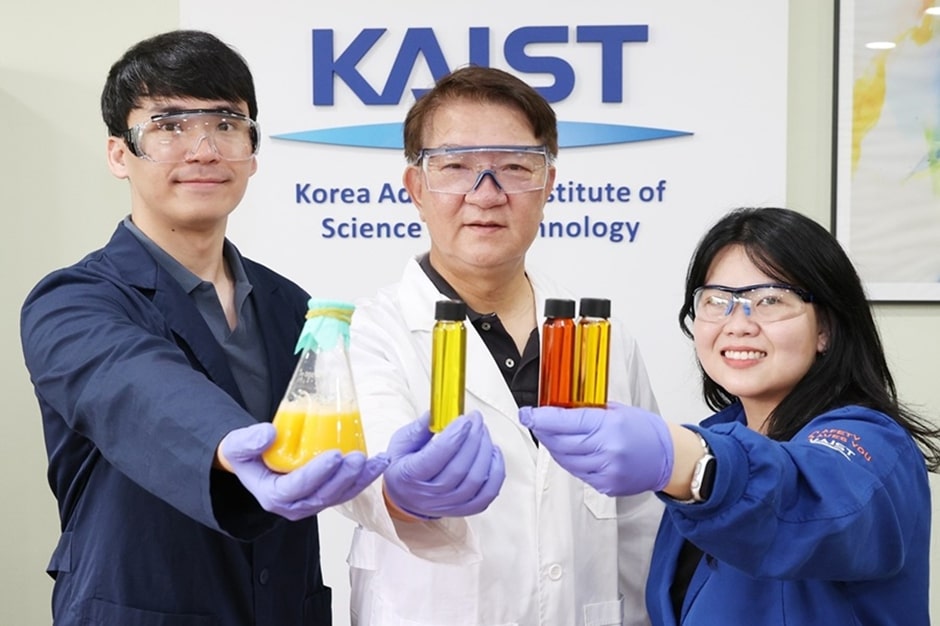
KAIST Researchers Engineer Microbe to Increase Lutein Production
July 16, 2025| |
A team of researchers at the Korea Advanced Institute of Science and Technology (KAIST) has successfully developed a microbial strain capable of producing lutein at a gram-per-liter scale through systems metabolic engineering strategies. The engineered Corynebacterium glutamicum will produce record-breaking levels of lutein that can be used in food, pharmaceuticals, and cosmetics.
The traditional extraction of lutein from marigold flowers has faced challenges such as long cultivation periods, low yield, and high labor costs. Led by Prof. Sang Yup Lee, the KAIST research team addressed these limitations by engineering C. glutamicum. Their approach focused on eliminating metabolic bottlenecks and employing enzyme scaffold-based electron channeling strategies to improve metabolic flux towards lutein biosynthesis.
The engineered C. glutamicum achieved a record-breaking production rate of 1.78 g/L within 54 hours, which is the highest lutein production performance in any host reported to date. This milestone not only marks a significant advancement in sustainable lutein production but also opens doors for the efficient microbial synthesis of other high-value natural products. The findings of the study, published in Nature Synthesis, offer a promising alternative method to the conventional plant-based lutein production.
For more information, read the article from KAIST.
| |
You might also like:
- Scientists in the US and UK to Uncover Role of Microbes in Plant Immunity
- First-ever Engineered Plant Microbiome Protects Crops Against Diseases
- Pocket K No. 20: Microbial Fermentation
Biotech Updates is a weekly newsletter of ISAAA, a not-for-profit organization. It is distributed for free to over 22,000 subscribers worldwide to inform them about the key developments in biosciences, especially in biotechnology. Your support will help us in our mission to feed the world with knowledge. You can help by donating as little as $10.
-
See more articles:
-
Plant
- Researchers Unlock the Pangenome of Barley's Closest Wild Relative
- Australia's Gene Technology Regulator Invites Comments on Commercial Release of GM Cotton
- Corn DNA Reveals Secrets to Vital Crop Traits
- Researchers Identify Rice Protein Involved in Chloroplast Control and Stress Response
- EU Authorizes Market Entry of GM Soybean MON 87705 × MON 87708 × MON 89788
-
Food
- 8th Asian Short Course on Agribiotechnology, Biosafety Regulation, and Communication (ASCA8)
- Perceived Value and Social Influence Drive Acceptance of GM Food in Spain
-
Health
- KAIST Researchers Engineer Microbe to Increase Lutein Production
-
Read the latest: - Biotech Updates (February 18, 2026)
- Gene Editing Supplement (January 28, 2026)
- Gene Drive Supplement (February 22, 2023)
-
Subscribe to BU: - Share
- Tweet

